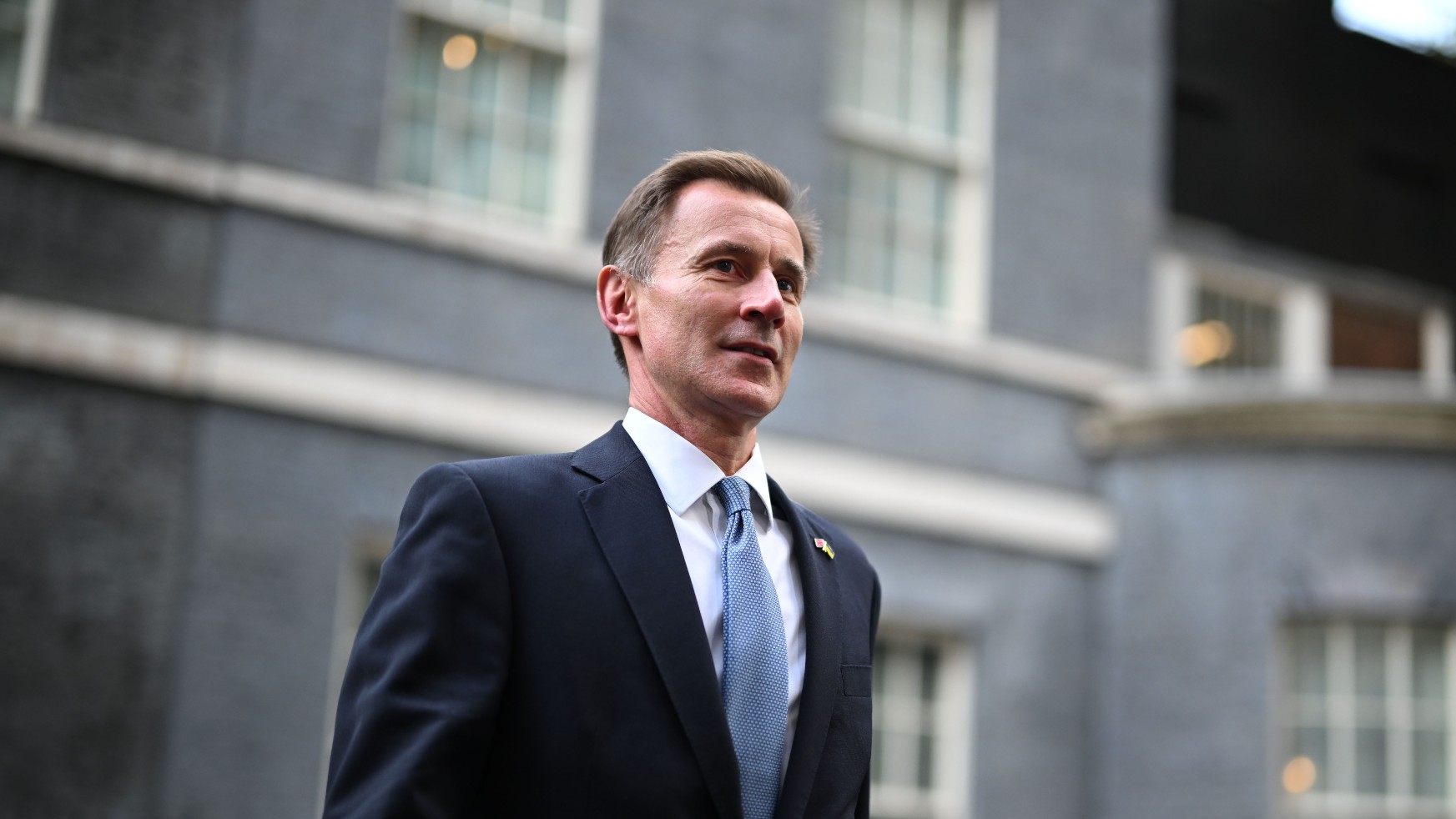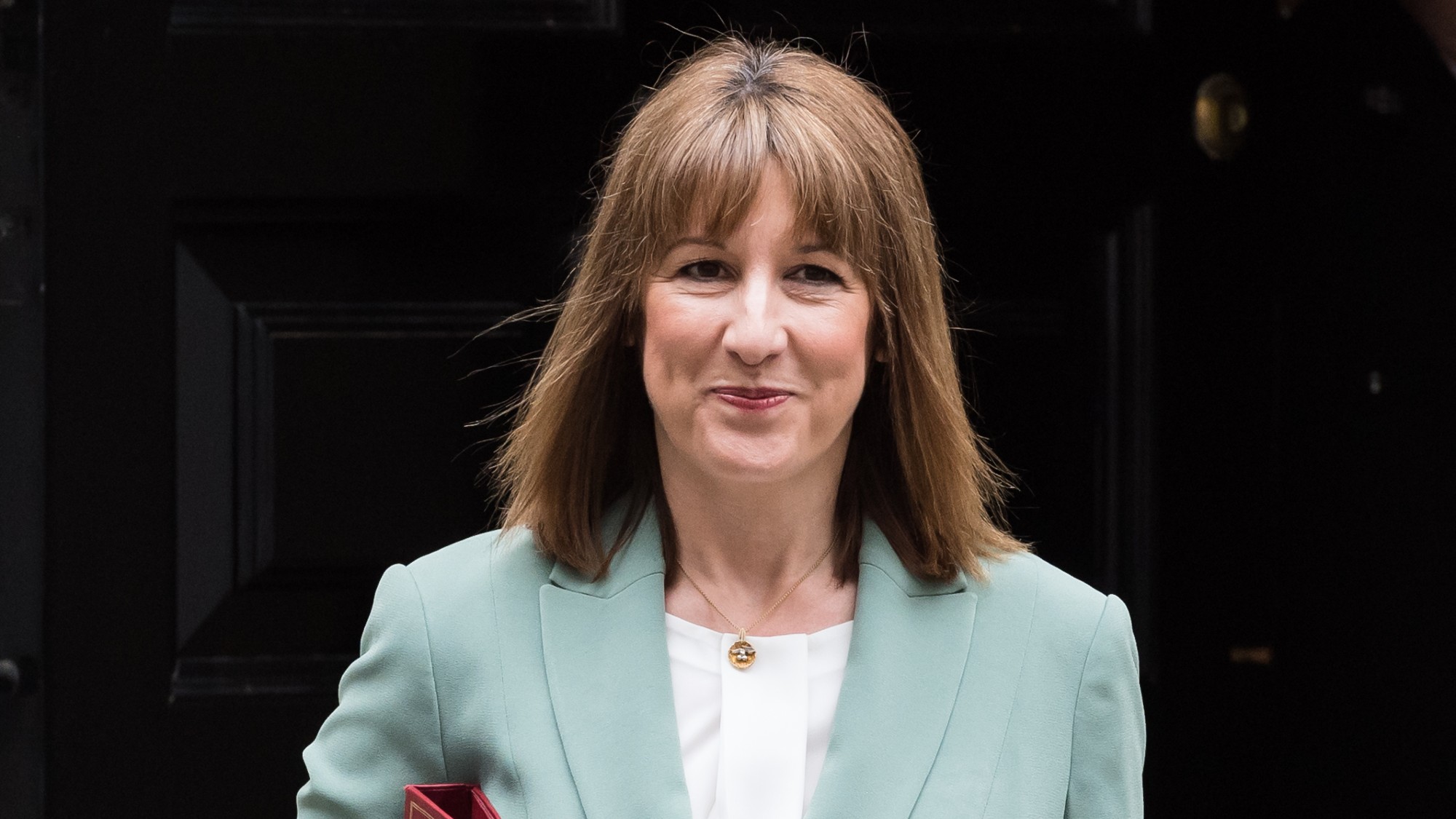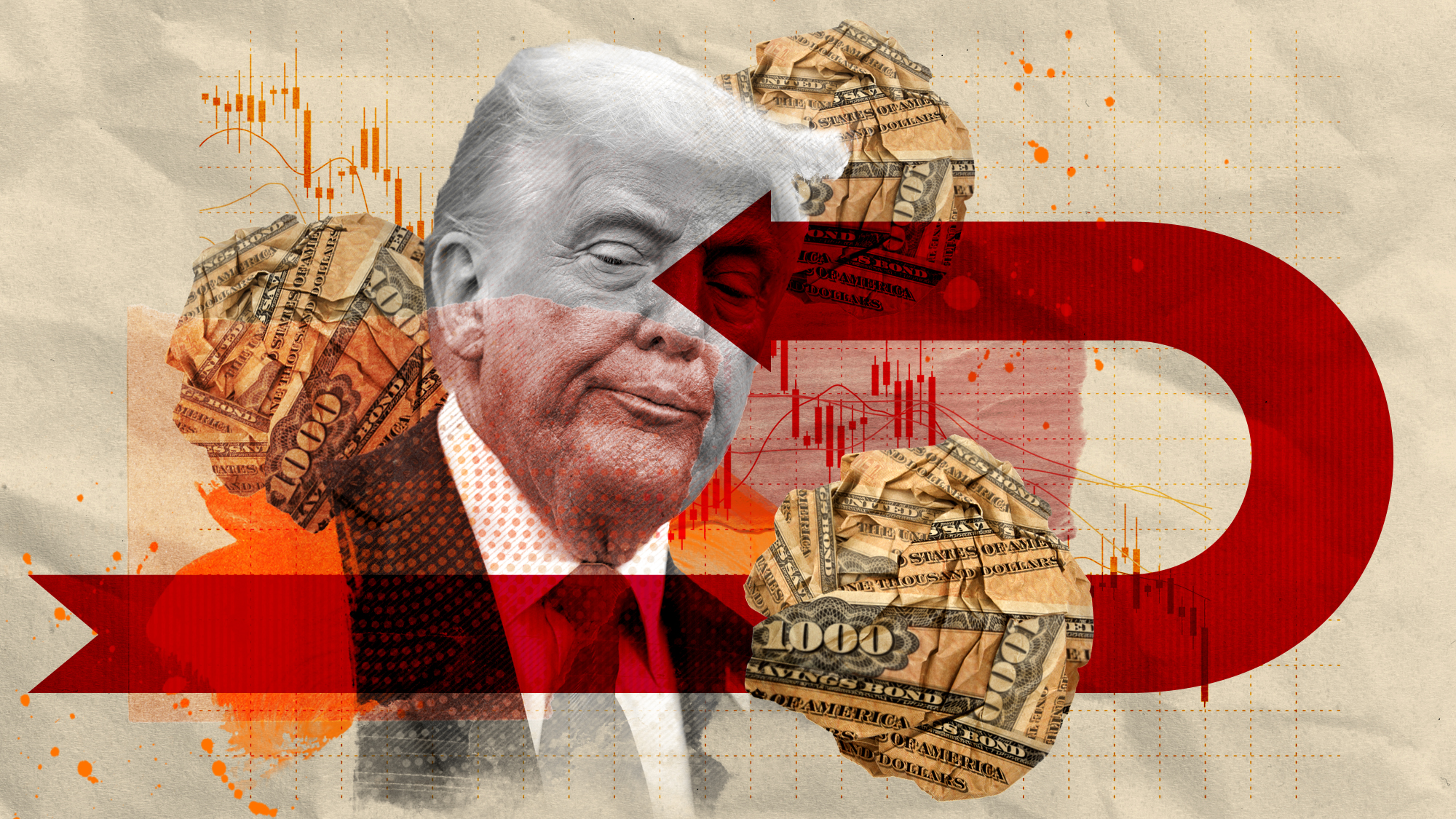Budget cuts and stealth tax rises: five predictions for the Autumn Statement
Chancellor eyes savings from public spending, inheritance tax and energy profit levies

A free daily email with the biggest news stories of the day – and the best features from TheWeek.com
You are now subscribed
Your newsletter sign-up was successful
Jeremy Hunt has warned of higher taxes for “everyone” and significant cuts to public spending ahead of his Autumn Statement this Thursday.
Speaking to BBC One’s Sunday with Laura Kuenssberg programme, the chancellor said the UK economy was facing “very choppy waters” and had probably already entered a recession. He wants to fill what Treasury officials have called an “eye-watering fiscal black hole” of £50bn.
The “highly anticipated” fiscal event “will have a massive effect on Brits, especially as the cost-of-living crisis continues to crunch household finances”, said The Sun.
The Week
Escape your echo chamber. Get the facts behind the news, plus analysis from multiple perspectives.

Sign up for The Week's Free Newsletters
From our morning news briefing to a weekly Good News Newsletter, get the best of The Week delivered directly to your inbox.
From our morning news briefing to a weekly Good News Newsletter, get the best of The Week delivered directly to your inbox.
Advance reports suggest Hunt will adopt a 50:50 split between spending cuts and tax rises, in contrast to George Osborne’s 80:20 austerity ratio.
Spending cuts
Cuts to public spending are expected to mostly take the form of “efficiency savings” from government departments, said The New Statesman, which “could mean the scaling back of some projects, Whitehall job cuts and real-terms reductions in public sector pay amid high inflation”.
Thursday’s announcement will undoubtedly have a “big impact” on public spending, with government departments expected to be capped by the funding limits originally allocated in 2021, until 2025, said Kuenssberg on the BBC.
This would amount to “a huge budgetary tightening on the same scale as his predecessor George Osborne’s austerity Budget of 2010”, reported the Financial Times. Last week, the paper estimated that the chancellor intends to cut £33bn from public spending and £21bn from tax rises, but said the final figures were yet to be decided.
A free daily email with the biggest news stories of the day – and the best features from TheWeek.com
Prime Minister Rishi Sunak has vowed to protect only one area of spending, the NHS, meaning others could face much deeper cuts.
The government has already indicated it will look to cut planned investments such as the HS2 rail project. Cutting capital spending might raise £10bn, but paring back public investment would be the “anti-growth” option, according to the Resolution Foundation.
Stealth taxes
“It is understood most of the extra revenue will come from freezing tax thresholds,” said Kuenssberg.
She wrote: “In order to stick to the Conservatives’ manifesto promise not to raise individual taxes the chancellor will instead repeat the trick of his predecessor. He’s expected to freeze the threshold at which you start paying tax. It’s got a horrible technical name – ‘fiscal drag’ - and it can have a horrible impact on earners too.”
The Sun described these as “stealth taxes”. It means that “while the government doesn’t change the headline tax rate, you end up paying more money”, explained the paper, “because while salaries rise, the tax threshold stays the same, and so you get dragged into paying higher rates”.
The £12,570 threshold where you start paying 20p income tax and 12p National Insurance is already being frozen for four years until April 2026. Many now expect a freeze on income tax thresholds to be extended for another two years, meaning, for example, those earning more than £50,000 a year could end up paying £3,659 more in tax overall.
Inheritance tax threshold freeze
The same thinking is behind a predicted freeze on the inheritance tax threshold, “a move that could pocket the Treasury an extra £1bn from grieving families”, said MoneyWeek. Hunt is expected to maintain the £325,000 threshold, which has been frozen since 2009, for a further two years beyond the planned end date of April 2026. An estimated 10,000 extra families may have to pay inheritance tax in those two years “as more people’s estates are dragged above the tax threshold”, said the magazine.
Patrick O’Flynn in The Telegraph dubbed the plans a “slap in the face to Conservative voters” and claimed it amounted to a “cruel and unusual punishment being enacted upon the homeowners of Middle England”.
Energy profits levy extension
With the likes of BP and Shell reporting record profits in the three months to September, “pressure is continuing to mount for an enhanced windfall tax on oil and gas giants to help fill the Treasury coffers”, said Sky News.
The Times reported that Sunak and Hunt want to maximise revenues by increasing the tax rate on oil and gas profits from 25% to 35%, extending the policy until 2028, and expanding it to cover electricity generators. This could raise an estimated £45bn over five years, the paper said.
The Treasury was forecast to raise £7bn through a windfall tax on profits from oil and gas companies' UK businesses in 2022, yet figures from the Office for National Statistics show the amount collected between May, when the levy came into force, and the end of September was just £2.8bn.
Benefits and pensions claimants prioritised
There had been reports Sunak and Hunt were looking for ways to raise benefits in line with wages rather than inflation and to drop the Osborne-era pensions “triple lock”, which commits to raising pension payments in line with inflation, average earnings or by 2.5% each year, whichever is higher.
The first measure alone would save the Treasury an estimated £5bn a year. However, the move would be politically dangerous, especially at a time when people are struggling to pay their bills amid a cost-of-living crisis that will disproportionately affect those on benefits and low income.
Because of this, The Times expects Sunak and Hunt “will increase pensions and benefits in line with inflation in an effort to ensure the budget is seen as ‘fair and compassionate’”.
This does not mean either commitment will survive past the next election, though. According to the Daily Mail, ministers are considering scrapping the triple lock altogether after 2025 and replacing it with a different formula, something Sunak has not ruled out.
Pensioners and those on benefits are also expected to received targeted help with one-off payments towards rising bills once the government’s energy price cap comes to an end in April next year. While it could save the Treasury £40bn from the total cost of the energy bailout, it is expected to add hundreds of pounds a year to households that are not eligible for help.
-
 The ‘ravenous’ demand for Cornish minerals
The ‘ravenous’ demand for Cornish mineralsUnder the Radar Growing need for critical minerals to power tech has intensified ‘appetite’ for lithium, which could be a ‘huge boon’ for local economy
-
 Why are election experts taking Trump’s midterm threats seriously?
Why are election experts taking Trump’s midterm threats seriously?IN THE SPOTLIGHT As the president muses about polling place deployments and a centralized electoral system aimed at one-party control, lawmakers are taking this administration at its word
-
 ‘Restaurateurs have become millionaires’
‘Restaurateurs have become millionaires’Instant Opinion Opinion, comment and editorials of the day
-
 Is the UK headed for recession?
Is the UK headed for recession?Today’s Big Question Sluggish growth and rising unemployment are ringing alarm bells for economists
-
 US mints final penny after 232-year run
US mints final penny after 232-year runSpeed Read Production of the one-cent coin has ended
-
 Should Labour break manifesto pledge and raise taxes?
Should Labour break manifesto pledge and raise taxes?Today's Big Question There are ‘powerful’ fiscal arguments for an income tax rise but it could mean ‘game over’ for the government
-
 French finances: what’s behind country’s debt problem?
French finances: what’s behind country’s debt problem?The Explainer Political paralysis has led to higher borrowing costs and blocked urgent deficit-reducing reforms to social protection
-
 Is Rachel Reeves going soft on non-doms?
Is Rachel Reeves going soft on non-doms?Today's Big Question Chancellor is reportedly considering reversing controversial 40% inheritance tax on global assets of non-doms, after allegations of 'exodus' of rich people
-
 Pocket change: The demise of the penny
Pocket change: The demise of the pennyFeature The penny is being phased out as the Treasury plans to halt production by 2026
-
 How the US bond market works – and why it matters
How the US bond market works – and why it mattersThe Explainer Donald Trump was forced to U-turn on tariffs after being 'spooked' by rise in Treasury yields
-
 US Treasuries were a safe haven for investors. What changed?
US Treasuries were a safe haven for investors. What changed?Today's Big Question Doubts about America's fiscal competence after 'Liberation Day'